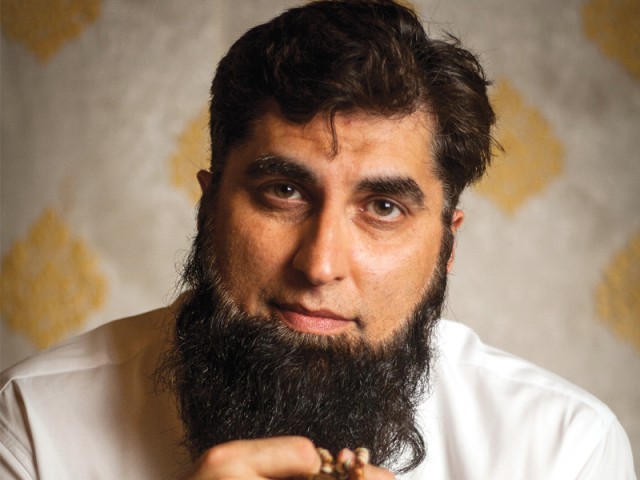
(Ameer Hamza / The Express Tribune)
We all remember where we were when we heard about a specific tragedy. I was sitting in a language class when my news app flashed “Pakistan International Airlines crash…” Of course, that is the moment my hands froze and the sweat on my fingers did not allow the fanciest of technologies to function so I could read the rest of that headline. Knowing that both my parents were traveling that day, potentially on that airline, I ran out of class to call them. They were both safe, I was relieved, but shaking.
48 people died that day, virtually everyone onboard that flight from Chitral to Islamabad. Among the dead was Pakistan’s pop-star-turned-evangelic-preacher, Junaid Jamshed.
Flashback to 1990s Dubai with 6 year old me, my parents and my siblings. Car rides anywhere would have “Vital Signs” playing off of a cassette my older brother had brought back from our last trip to Pakistan. They were considered the revitalizing band of Pakistan, pulling it out of the dictatorial theocracy of General Zia-ul-Haq, into a nation swaying with nationalistic pride and romantic harmony.
Junaid Jamshed was their lead singer and every girls dream. Not your typical alpha male lead singer, Junaid or JJ was tall, fair skinned, light eyed and awfully shy. His band created the song that many believe to be our national anthem. Dil Dil Pakistan (literally “heart heart Pakistan”—something I cannot translate) is still played today at any national celebration.
Over the years, JJ, as he was endearingly known, became the epitome of Pakistan. When he puffed up his hair and wore a bright waistcoat, you best believe all Pakistani boys were doing it. Years later, with this following, he started a successful fashion brand. Soon after launching his solo singing career, JJ disappeared from the public eye.
He reappeared years later with a long, stark black beard which sat as though fake, on his radiant white face. With his charm still handy and post-9/11 confusion, JJ had a new message of faith, of the consciousness of the fleeting characteristic of life in this world. JJ had become an evangelical, who would soon be given multiple television appearances to talk about his new found peace in preaching Islam.
He eventually had his own television shows, and like before, JJ drew crowds and set trends. Over the next few years he would be caught making sexist remarks, some of which would force him into temporary self-exile. At this point, you either loved or hated JJ, but you could not look away from him long enough.
Junaid was one of the 47 that died the day the flight PK 661 crashed when it’s left engine caught fire. Pakistan was united in grief, yes, but in a particular mourning for the loss of JJ. Pakistani journalist, Fasi Zaka wrote:
“One section [of society] remembers how he provided the soundtrack to their lives, every song marking a memory, a milestone in life. Another section remembers him for the religious figure that he had become. Junaid himself didn’t bridge the gap between modernity and religion – he shifted from one to another. But in his death, the two differing tribes of Pakistanis – the ‘moderns’ and the [religious]– shared the same pew, united not in what they said but in their use of the language of grief.”
JJ was an avid member of both those factions of society—a modern 20-something, bringing music to the youth in Pakistan, and a preacher speaking to the religiously fervent. During his life, he did not wish to serve as a mediator between the two sections he knew so well—on the contrary when he “reverted” to religion he seemed to see his past life in slight disdain—but his death served as that bridge.
In the last sermon he offered in Chitral, he talked about death and how near it was and so our actions should all be measured. Hours later, Pakistani’s the world over came together to mourn this man that had served as a measure to the current state of mind of Pakistani society.
Pakistanis will always remember where they were when news of JJ’s passing came to them.